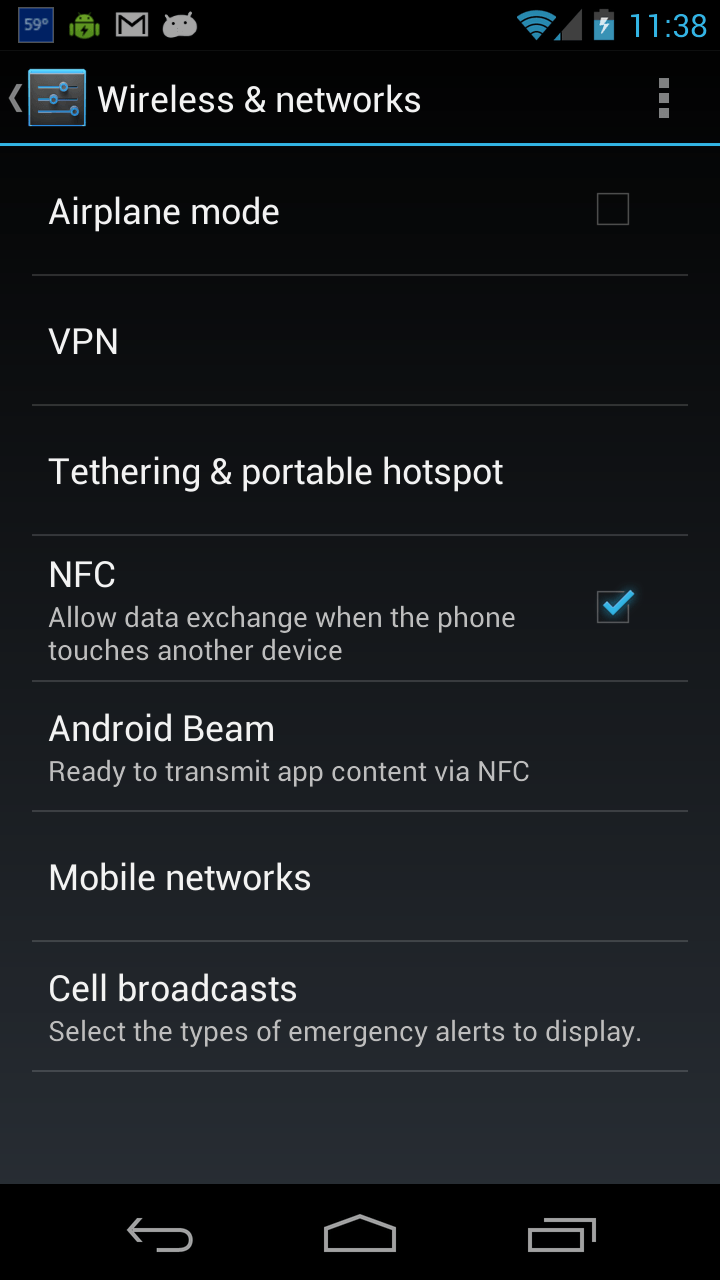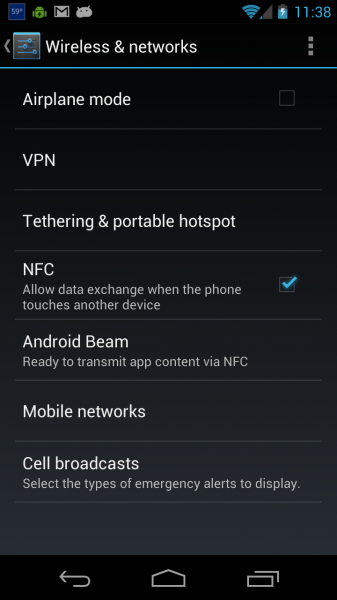Turn Off NFC on your Android Phone to Save Battery and Make it More Secure

Near Field Communication, better known as NFC, is being built into almost every new smartphone today, with the exception of the Apple iPhone. Â It can be a tremendous tool for making payments and handling other tasks like "checking in" on services like FourSquare, but it also scares a lot of users thanks to it's personal security implications (for the lowdown on that you can give a listen to security expert Steve Gibson). Â Beyond the simple security concerns, the service can also be taxing on battery life.
For those using an Android device, the NFC feature can be turned off fairly easily. Â If it's a service you use on a regular basis then you probably won't want to be turning it on and off all the time, although it's a very simple process. Â However, if you don't regularly use NFC then you may just want to keep it disabled for the simple reason of saving a bit of battery life on your Android phone or tablet.
To get started, click on the apps link and scroll to find the "Settings" link. Â Then, tap the "More" option beneath the "Wireless and Networks" section. Â Your steps may vary slightly based on the version of the Android operating system that you are running (the screenshot below was taken from version 4.1.1, Jelly Bean).
From here you will spot the NFC option, which is enabled by default. Â Tap on the check box to remove the check mark and disable the service. Â You can always re-enable it by reversing this process.
Given the extremely short range of NFC, security concerns over the service are probably overblown, but it does have a very real effect on a device's battery life. Â The latter implication is the one that many of you may want to consider when deciding if you really need it to be running in the background all the time.
Update: Ananya pointed out that the impact of NFC on a phone's battery life may not be as big as one would think it is.It is probably best to test that for yourself to see how it impacts your phone. The security implications on the other hand are still valid.
Advertisement





















I found NFC to be affecting my cell data transfer rates. Took me a while to figure out, but by shutting off the NFC, my cell data download speeds increased by 3x. I never had an issue with signal, just data speeds. Not sure if this is an issue with other phones, but my Pixel 2 had this issue with Verizon as my carrier. It would be interesting to see if other phones have the same issue…
http://www.bbc.co.uk/news/technology-37495102
How things change (sprouting nonsense etc).
Quote: “In fact he is generally regarded as full of sh!t by the wider technical community.”
In fact, anytime yousee the words “generally” or “widely” in a comment you can disregard the statement as utterly contrived and misleading.
Pete you are the sort of person who is not emotionally ready to have internet access.
This article AND ALL of its replies are 100 percent propaganda designed to mislead
innocent people and MISINFORM the general public as to the TRUE and KNOWN CAPABILITIES of this (supposed unharmful and unintrusive) NFC technology really is ! And not that it was origonally intended to be anything but a tool useful to its users. But EXACTLY WHAT it has been DEVELOPED into is surely obscured by legislative requirements, and gag orders by Judges etc. for SO-CALLED national security reasons which this kind of DIRECTLY LYING & DECEPTION was made basically into STANDARD OPPERATING PROCEEDURES via another creatively named and written piece of legislation called THE PATRIOT ACT and THE PATRIOT ACT II .If you dont believe what Im telling you, then google it and read the full text of these documents for yourself . But do not be misled and or exploited by believing articles like the above one, or its comments ! A of which are lies, propaganda, or written by people who are NOT in the loop, or in the know by any means. INVESTIGATE THINGS FOR YOURSELF !! Or be exploited and a believer of all kinds of lies…
You are going to have a lot of problems tackling this Android coverage. My HTC EVO V/3D screen doesn’t look much like what you show above.
That is the big problem with Unix/Linux systems – nothing is standardized.
I agree, this is a real problem.
What nonsense is this? I’ve been using NFC payments in Japan for years, there’s no such “energy use” as your claim and the security concerns raised here are nonsense. Even if your phone is off, you can actually still pay with your phone, it’s only a chip.
Steve Gibson is sprouting NONSENSE.
Gibson never claimed the NFC chip drains battery life. And he was referencing Charlie Miller’s detailed research. Charlie Miller does not “spout nonsense”. See for yourself:
http://ebookbrowse.com/defcon-20-miller-nfc-attack-surface-pdf-d385064875
NFC’s security impact on Android is also being overblown. As Ananya points out, NFC is only turned on while your screen is on AND your phone is unlocked (aka when you’re using it.) Traditional NFC concerns, such as people tapping your phone in your pocket and gaining access are unfounded. If your screen is off, your phone is secure.
Steve Gibson is well known to over-react and exaggerate security concerns. In fact he is generally regarded as full of sh!t by the wider technical community.
Gibson was referencing a presentation by Charlie Miller, a highly respected security researcher. Here’s a quick analysis from a very authoritative source:
http://nakedsecurity.sophos.com/2012/08/01/black-hat-dont-stand-so-close-to-me-an-analysis-of-the-nfc-attack-surface/
Gibson btw said he WANTS NFC in his phones – just disabled when not needed.
And if he was “generally considered full of shit” he wouldn’t have one of the longest running TWIT-TV shows with a large audience among the “technical community”.
Please update your article with more accurate information regarding NFC impact to battery life. The NFC chip is essentially turned off when the display screen is off. I have NFC always turned ‘on’ in my Galaxy Nexus and the impact to battery life is practically imperceptible.
You can get more information here: http://goo.gl/2seJj